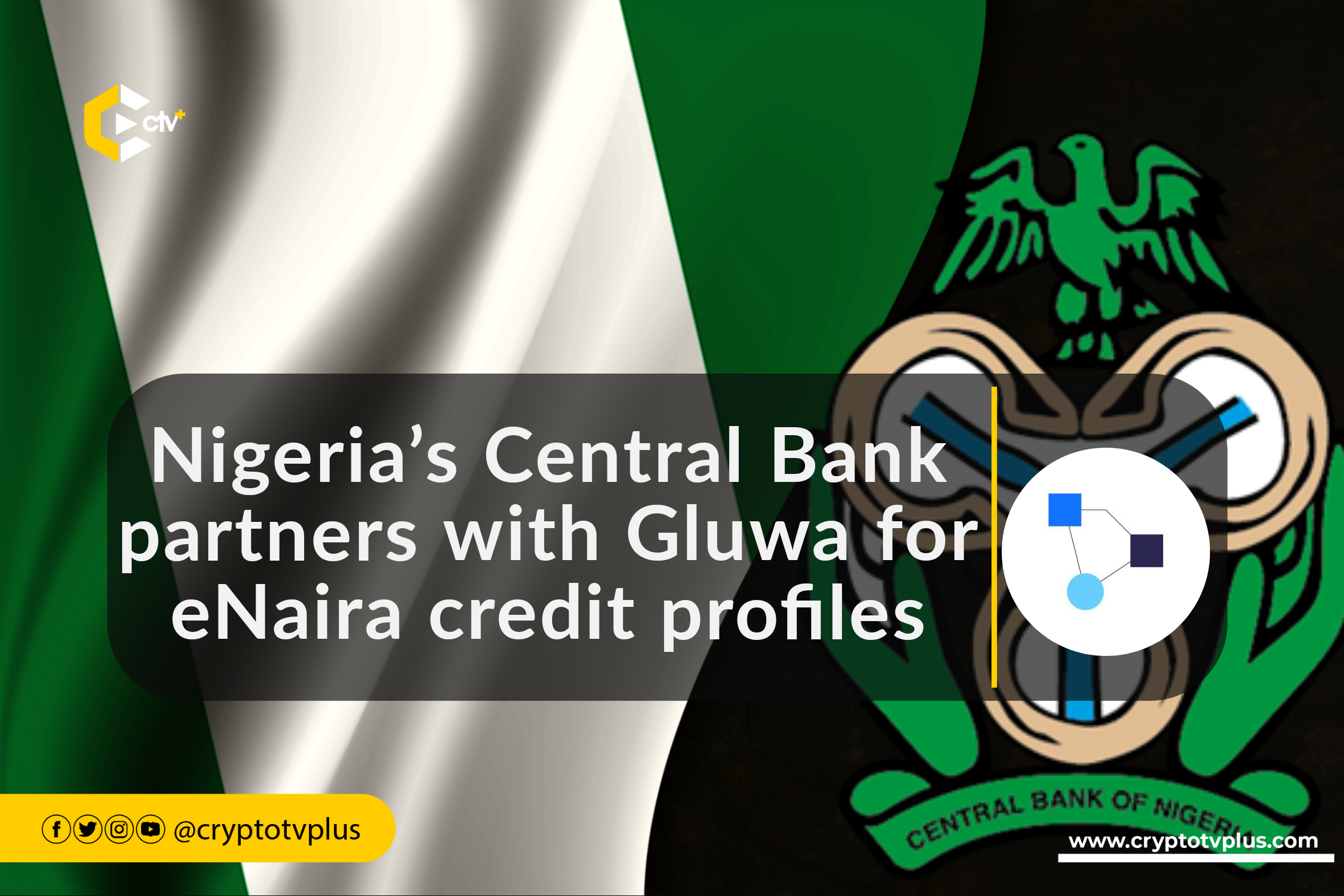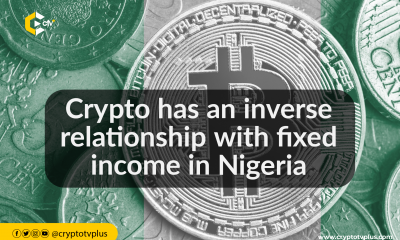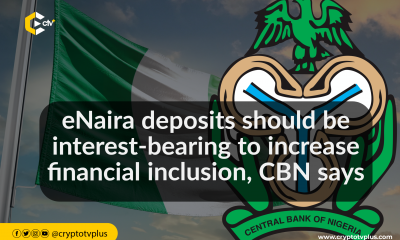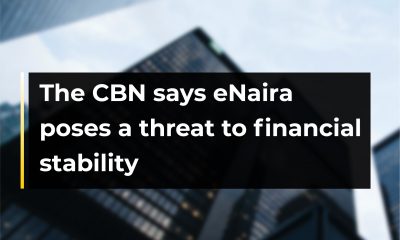News
Nigeria’s Central Bank partners with Gluwa for eNaira credit profiles

The Central Bank of Nigeria has partnered with Gluwa, a blockchain-based credit rating platform, to develop credit profiles for its digital currency, the eNaira.
While the naira had yet to gain widespread adoption, creating credit profiles for users could have helped promote financial inclusion by granting people access to credit and other financial services.
The CBN signed a memorandum of understanding with Gluwa Nigeria to enhance the adoption of the eNaira CBDC.
Gluwa, a blockchain-based financial services platform with several years of experience operating in Nigeria, became an agent partner of the CBN. It utilized its Credal technology to create “credit reputations” for users traditionally excluded from the financial system.
The credit profiles created by Gluwa were portable and accessible across borders, increasing the usefulness of the entire CBDC.
“The integration of Credal is anticipated to streamline loan origination, management, settlement, and credit assessment processes for local fintech lenders.”
The e-Naira, launched in October 2021, became the second-oldest CBDC globally, following the Bahamian Sand Dollar.
By mid-2023, less than 1% of Nigerians with bank accounts had eNaira wallets, and less than 1.5% of wallet holders used their accounts within a given week, according to available data.
Between 20% and 30% of Africans had a credit score, leaving the remaining population unrated and effectively “invisible” to lenders, as provided in the information.
Alternative solutions for improving credit scoring in Africa involved the use of soulbound NFTs and capturing information from low-value peer-to-peer transactions.
Many payment solutions in Africa, including Gluwa, relied on mobile phones to provide financial services, rather than traditional banking infrastructure.
In 2022, Gluwa collaborated with the Lagos State government to tokenize agricultural assets, part of a broader project to enhance economic development in the region.
In April 2023, Gluwa publicly offered advisory services to the Nigerian government on cryptocurrency policy, notable amid ongoing tensions between the government and cryptocurrency exchanges.
However, following criticism of crypto exchanges by the Nigerian government, Binance announced on March 8 that it would no longer support the naira.
Tae Oh, founder of Gluwa, also headed the Creditcoin Network, a separate layer-1 blockchain aimed at creating a public ledger of credit history and loan performance to help users build credit history on the blockchain.
Read also: Ethereum Foundation alongside zkSync allocates $900K for ZK Layer 2 development

























Pingback: Injective launches inEVM Layer 2 on mainnet | CryptoTvplus - The Leading Blockchain Media Firm